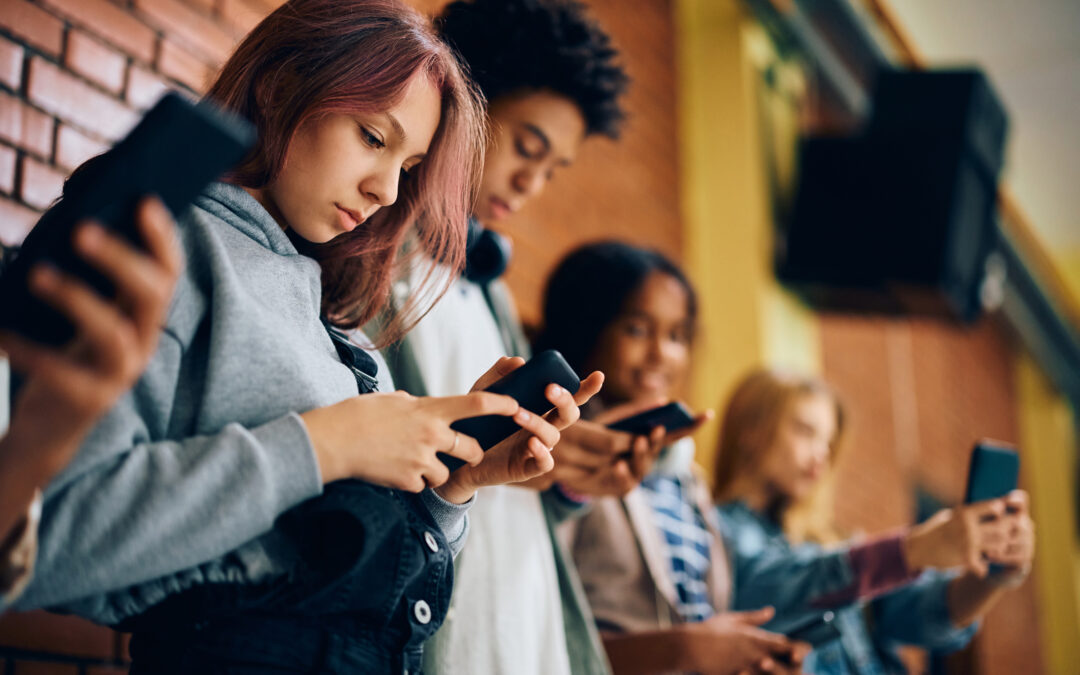Social media has become an integral part of modern life, connecting billions worldwide. For adolescents and young adults, it’s more than just a communication tool—it’s a space for self-expression, community, and discovery. However, as the prevalence of social media grows, so do concerns about its impact on mental health. While it can foster connection and awareness, excessive or unmindful use can exacerbate anxiety, depression, and self-esteem
Let’s explore the dual impact of social media on mental health, discuss the benefits of digital detoxes, and highlight ways to embrace its positive potential.
The Negative Impact of Social Media on Teen Mental Health
Teenagers and young adults, still developing emotional regulation, are especially vulnerable to the negative effects of social media.
- Cyberbullying: Online platforms can amplify bullying, making harassment public and pervasive. Victims of cyberbullying often experience heightened levels of anxiety and depression.
- Social Comparison: The curated nature of social media often leads to unrealistic comparisons, contributing to feelings of inadequacy and FOMO (fear of missing out).
- Body Image Issues: According to the National Institute of Mental Health, Instagram has been specifically linked to worsening body image issues, with 40% of users reporting that the platform makes them feel worse about their physical appearance.
Statistics further underscore these risks. A 2022 Pew Research Center study revealed that 46% of teens believe social media increases their anxiety and depression. These findings highlight the urgent need to address these challenges.
Social Media Addiction and Its Effects
Social media’s design—endless scrolling, likes, and notifications—makes it highly addictive. This constant engagement can lead to:
- Reduced attention spans.
- Increased stress levels due to the pressure to maintain an online persona.
- Sleep disturbances from late-night scrolling.
The Value of Social Media Detoxes
As awareness grows about the toll social media takes on mental health, more people are turning to digital detoxes to reclaim balance and well-being.
What is a Digital Detox?
A digital detox involves intentionally stepping away from social media or reducing usage to improve mental clarity and emotional health. Signs you may need a detox include feeling overwhelmed, distracted, or overly dependent on social media for validation.
Mental Health Benefits of Detoxes
Research and anecdotal evidence suggest that taking breaks from social media can lead to:
- Reduced stress and anxiety.
- Improved focus and productivity.
- Better sleep and more meaningful real-world interactions.
Practical Tips for a Successful Detox
- Set limits using screen-time tracking tools or app blockers.
- Dedicate time to offline hobbies, mindfulness, or physical activities.
- Communicate your intentions to friends and family to manage expectations and accountability.
The Positive Effects of Social Media on Mental Health
While social media has its pitfalls, it can also be a powerful tool for connection, education, and advocacy.
Support and Connection
Social media platforms can create a sense of community for those dealing with mental health challenges or chronic illnesses.
- 41% of users who engage in online support communities report feeling more connected and supported.
- Sharing experiences reduces isolation and fosters understanding.
Mental Health Awareness and Advocacy
Platforms like Instagram, Twitter, and TikTok are hubs for mental health advocacy. From professional therapists sharing tips to individuals bravely sharing personal stories, these platforms reduce stigma and increase awareness.
- The American Psychological Association (2019) found that 60% of individuals felt more open to discussing mental health because of what they encountered online.
Opportunities for Education
Many professionals use social media to provide accessible mental health resources, empowering individuals to seek help and understand their emotions better.
Finding Balance: Navigating the Pros and Cons of Social Media
The key to healthy social media use is balance. Here are some strategies:
- Mindful Consumption: Regularly assess how social media makes you feel. Unfollow accounts that trigger negative emotions and curate your feed to align with your values.
- Open Conversations: Encourage discussions about social media’s effects within families and schools to promote awareness and proactive solutions.
- Leverage the Positive: Engage with mental health communities and educational content to benefit from social media’s supportive potential.
Social media is a double-edged sword, offering both risks and rewards for mental health. While it can exacerbate anxiety, depression, and self-esteem issues, it also fosters connection, advocacy, and education. By practicing mindful consumption, taking regular digital detoxes, and focusing on the positives, individuals can navigate social media in a way that supports their mental well-being.
Take a moment to reflect on your relationship with social media. Are you using it to enrich your life, or is it taking a toll on your mental health? The choice to find balance lies in your hands.
The road to wellness starts by seeking help today.
Built on the principles of assertive community treatment, Galen Hope is an eating disorder and mental health treatment center offering individualized treatment options that include Intensive Outpatient (IOP) with supported housing option and Partial Hospitalization Programs (PHP). As a “Community of Integrated Wellness,” we pride ourselves in fostering a thoughtful and meaningful care experience that can guide our clients on their road to recovery and increased quality of life, regardless of diagnosis. With two locations in South Florida, Galen Hope currently offers in-person programming for adolescents and adults of all genders.
To learn more, please contact us here today or by calling 866-304-2955 or emailing [email protected]

